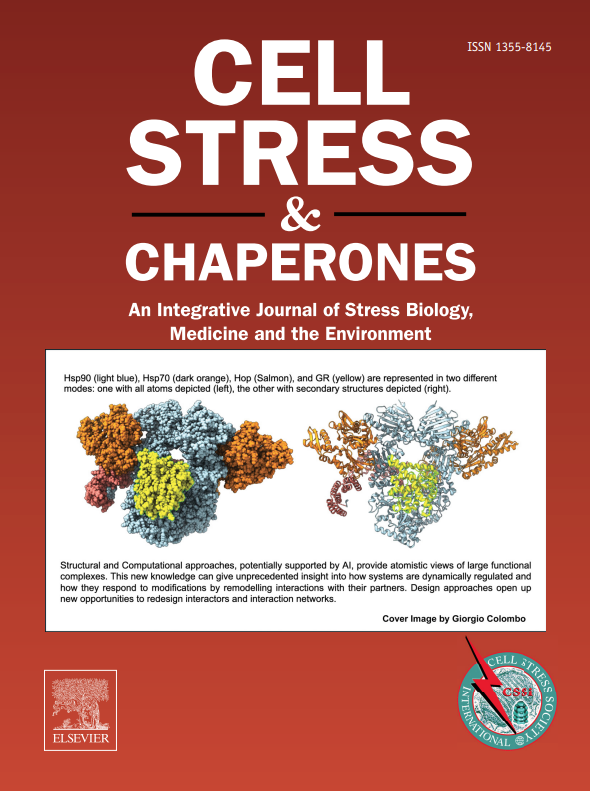Melatonin ameliorates heat stress-induced oxidative apoptosis in mouse spermatocytes via autophagy and ferroptosis pathways
IF 3.2
3区 生物学
Q3 CELL BIOLOGY
引用次数: 0
Abstract
Testicular heat stress is a critical factor contributing to male infertility, with spermatocytes exhibiting heightened sensitivity to temperature elevation. This study systematically elucidates the protective mechanisms of melatonin against heat stress-induced spermatocyte injury. In a murine heat stress model, melatonin intervention significantly reduced testicular accumulation of malondialdehyde (MDA) induced by heat stress, enhanced the activities of catalase (CAT) and superoxide dismutase (SOD), and suppressed germ cell apoptosis by downregulating the pro-apoptotic protein Bax and upregulating GPX4 expression. Sycp3 immunohistochemistry demonstrated that melatonin significantly improved spermatocyte structural integrity. In the GC-2spd (ts) spermatocyte cell line model, melatonin treatment markedly reduced MDA levels and alleviated heat stress-induced oxidative apoptosis and proliferation inhibition by downregulating key apoptotic proteins (Bax, Caspase-3, and cleaved-Caspase-3). Mechanistic studies revealed that melatonin restores autophagic balance by modulating the expression of autophagy-related proteins LC3-I, LC3-II, and P62. Concurrently, melatonin downregulated ferroptosis markers P53 and COX2, inhibiting ferroptosis by blocking DNA damage response and inflammatory amplification pathways. Melatonin synergistically maintained cellular redox homeostasis by downregulating the NRF2/HO-1 pathway and upregulating GPX4 expression, significantly reducing Fe²⁺ accumulation and ameliorating iron metabolism dysregulation. This study unveils the molecular mechanisms by which melatonin mitigates testicular heat stress injury through a multitarget regulatory network, providing novel therapeutic strategies for clinical intervention in heat stress-associated infertility.
褪黑素通过自噬和铁下垂途径改善热应激诱导的小鼠精细胞氧化凋亡
睾丸热应激是导致男性不育的一个关键因素,精子细胞对温度升高表现出更高的敏感性。本研究系统地阐明了褪黑素对热应激诱导的精母细胞损伤的保护机制。在小鼠热应激模型中,褪黑激素干预可显著降低热应激诱导的睾丸丙二醛(MDA)积累,增强过氧化氢酶(CAT)和超氧化物歧化酶(SOD)活性,并通过下调促凋亡蛋白Bax和上调GPX4表达抑制生殖细胞凋亡。Sycp3免疫组化显示褪黑素显著改善精母细胞结构完整性。在GC-2spd (ts)精细胞系模型中,褪黑素处理通过下调关键凋亡蛋白(Bax、Caspase-3和cleaved-Caspase-3),显著降低MDA水平,减轻热应激诱导的氧化性凋亡和增殖抑制。机制研究表明,褪黑素通过调节自噬相关蛋白LC3-I、LC3-II和P62的表达来恢复自噬平衡。同时,褪黑素下调铁下垂标志物P53和COX2,通过阻断DNA损伤反应和炎症扩增途径抑制铁下垂。褪黑素通过下调NRF2/HO-1通路和上调GPX4表达,协同维持细胞氧化还原稳态,显著减少Fe +积累,改善铁代谢失调。本研究揭示了褪黑素通过多靶点调控网络减轻睾丸热应激损伤的分子机制,为临床干预热应激相关性不孕提供了新的治疗策略。
本文章由计算机程序翻译,如有差异,请以英文原文为准。
求助全文
约1分钟内获得全文
求助全文
来源期刊

Cell Stress & Chaperones
生物-细胞生物学
CiteScore
7.60
自引率
2.60%
发文量
59
审稿时长
6-12 weeks
期刊介绍:
Cell Stress and Chaperones is an integrative journal that bridges the gap between laboratory model systems and natural populations. The journal captures the eclectic spirit of the cellular stress response field in a single, concentrated source of current information. Major emphasis is placed on the effects of climate change on individual species in the natural environment and their capacity to adapt. This emphasis expands our focus on stress biology and medicine by linking climate change effects to research on cellular stress responses of animals, micro-organisms and plants.
 求助内容:
求助内容: 应助结果提醒方式:
应助结果提醒方式:


